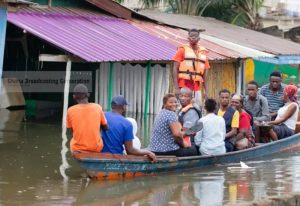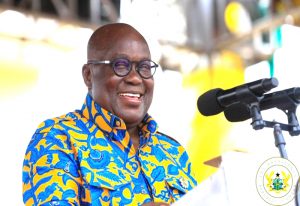By: Godwin Owusu Frimpong
The conclusion reached by the Office of the Special Prosecutor (OSP) regarding the Airbus saga raises significant questions about transparency, accountability, and the broader implications for the rule of law in Ghana. After an in-depth investigation that began in February 2020 and culminated in June 2024, Special Prosecutor Kissi Agyebeng announced to the media that former President John Mahama and others implicated in the allegations have been cleared of any wrongdoing, specifically denying any evidence of bribery linked to the procurement of military aircraft. This pronouncement not only marks a milestone in the high-profile investigation but also invites critical scrutiny of both the investigative processes and the legal frameworks underpinning such inquiries in Ghana.
Mandate of the OSP and Legal Framework in Ghana
The mandate of the Office of the Special Prosecutor, as outlined in the Special Prosecutor Act, 2017 (Act 959), is to investigate, prosecute, and recover the proceeds of corruption-related offenses. The Act provides the OSP with significant autonomy and a degree of independence from political influence, designed to bolster public confidence in the integrity of the investigative process. It also enables the OSP to specialize in high-profile cases that involve public officials and the misuse of state resources — a standing that in many respects distinguishes the OSP from other law enforcement agencies.
The laws pertaining to investigative bodies in Ghana explicitly empower institutions like the OSP to operate without undue interference, yet these provisions bring forth complex implications. Could the OSP’s decision to halt further investigations imply a lack of concrete evidence, or does it suggest an underlying inconsistency in how such high-profile corruption allegations are treated, especially when they relate to powerful political figures? In light of the OSP’s findings, these questions warrant a re-examination of the robustness of legal definitions of corruption in Ghana’s statutes, and whether they adequately equip investigators with the tools necessary to uncover illicit financial activities.
Critical Reasoning on the Findings
The formal declaration of “no evidence” of bribery in the Airbus deal poses new challenges for Ghana’s political landscape. It underscores the importance of evidence in governance and how allegations can shape public perception long after investigations conclude. The fallout from these allegations has undoubtedly shaped political discourse, with accusations often wielded as weapons in the contest for power. The public’s trust in political institutions is fragile, and investigations of this nature play a critical role in either reaffirming or undermining that trust.
The assertion made by Mr. Agyebeng that “direct communications and meetings between former President Mahama and officials of Airbus to close the deal were actuated by good intentions” opens up a layered analysis of intent and accountability. While good intentions are commendable, they must be measured against the backdrop of public service ethics and the expectations of transparency. The absence of any malfeasance does not necessarily absolve those in positions of power from the responsibility of exercising due diligence or from the political expediency of their decisions.
Moreover, the OSP’s findings inevitably intersect with wider discussions around systemic corruption and governance. If intermediaries in the Airbus deal engaged in questionable practices without implicating elected officials, what does this say about the accountability mechanisms within both public and private sectors? The perception or reality of a gap in oversight can lead to a cycle of impunity, where actors feel unrestrained by the potential for scrutiny or prosecution.
Conclusion and Implications for Governance in Ghana
The findings of the OSP in the Airbus saga serve not only as a pivotal moment for those directly involved but also as a litmus test for Ghana’s democratic integrity and the efficacy of its corruption-fighting apparatus. By clearing Mahama and his affiliates, the OSP not only protects the individuals implicated but also reinforces a critical narrative about the problems associated with politically motivated allegations. However, with each clearance comes a pressing need to bolster institutional frameworks that preempt corrupt practices and nurture an environment where accountability is truly paramount.
As citizens and watchdog organizations look towards the future, the closure of this chapter must inspire a conversation about the value of rigorous and transparent investigative processes that can, in tandem, ensure political leaders uphold the principles of integrity and good governance. In doing so, Ghana can fortify its commitment to the rule of law and foster a political culture that values accountability over the mere absence of proof. The lightweight findings from the OSP should not mark the end of scrutiny, but rather serve as a clarion call to evaluate the legislative and practical frameworks that govern public accountability in the quest for a corruption-free society.
Godwin Owusu Frimpong




